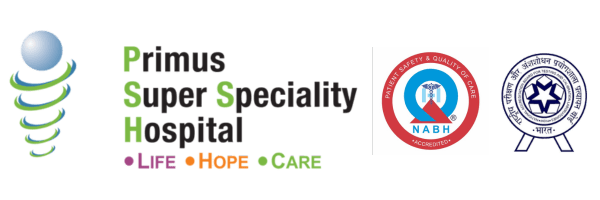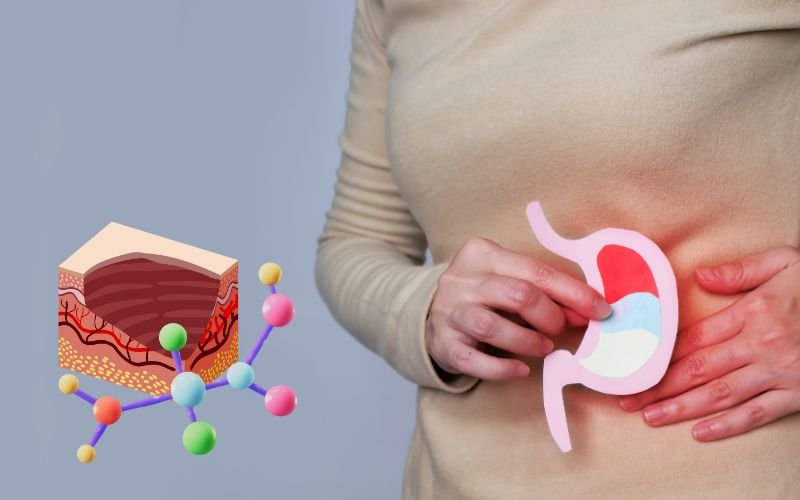Acid peptic disease is a common medical condition. It affects many people across the world. It causes discomfort, pain, and often confusion about its seriousness. When we ask, “Is acid peptic disease dangerous?”, the answer depends on how early it is diagnosed and how well it is treated. Many people suffer in silence due to a lack of awareness. In this article, we will explain the condition, its signs, and how to treat it. We will also talk about when it becomes serious and how to prevent it.
What is Acid Peptic Disease?
Acid peptic disease means your stomach or nearby areas are damaged by acid. The acid in the stomach helps to digest food. But if the acid becomes too strong or stays for too long, it harms the lining of your stomach or intestine. This disease includes conditions like gastritis, stomach ulcers, and duodenal ulcers. The acid peptic disease meaning lies in this simple fact — acid hurts the protective layer in your gut.
The stomach produces acid and enzymes. It also makes mucus to protect itself. When the balance between acid and mucus breaks, the acid starts causing damage. This leads to ulcers, pain, and other symptoms.
What Are the Causes of Acid Peptic Disease?
Many things can lead to acid peptic disease. Some common causes include:
- H. pylori infection: A type of bacteria that weakens the stomach lining.
- NSAIDs: Medicines like aspirin or ibuprofen, when used for long, can damage the stomach.
- Stress: Long-term stress can increase acid levels.
- Spicy food: Eating very spicy or oily food often causes irritation.
- Smoking and alcohol: These can hurt the stomach lining and increase acid production.
People who have unhealthy diets or work in high-stress jobs are more at risk. In some cases, family history also plays a part.
Symptoms of Acid Peptic Disease
The acid peptic symptoms vary from person to person. Some people may not feel much, while others may suffer a lot. The main signs to watch for include:
- Burning pain in the upper belly
- Feeling full too soon after eating
- Bloating and burping
- Nausea or vomiting
- Dark or bloody stools
- Weight loss without trying
If you notice these signs, do not ignore them. Visit a gastroenterology doctor in Delhi as early as you can. The faster you act, the easier it is to treat.
Is Acid Peptic Disease Dangerous?
Now to the main question: Is acid peptic disease dangerous? The answer is yes, if left untreated. In the early stages, it may seem mild. But if ignored, it can turn serious. Complications may include:
- Bleeding ulcers: These may cause vomiting blood or black stools.
- Perforation: A hole may form in the stomach wall, which is a medical emergency.
- Obstruction: Swelling or scarring may block food from passing.
- Cancer: Long-term damage to the stomach lining may increase the risk of cancer.
So, while acid peptic disease is treatable, it can be dangerous if care is delayed. Never ignore long-term symptoms like pain or black stools.
Acid Peptic Disease in Hindi-Speaking Areas
In India and other Hindi-speaking areas, people often ask about acid peptic disease in Hindi or how to explain it to others. The local term is usually “Amalpitt rog”, which means acid imbalance disease. People may relate it to “gas” or “acidity”. Because of poor eating habits and irregular meals, the problem is growing fast.
Rural areas, in particular, face a challenge. Many avoid seeing a doctor or rely on home remedies. While home tips can give short relief, the disease often returns. Clear information and medical support are important to stop the disease from becoming severe.
How is Acid Peptic Disease Diagnosed?
If your doctor suspects acid peptic symptoms, they may suggest the following tests:
- Endoscopy: A thin tube with a camera checks for ulcers or damage.
- H. pylori tests: Blood, breath, or stool tests look for bacteria.
- Barium X-ray: Shows the shape and lining of the stomach.
- Stool or blood tests: To check for bleeding or infection.
Getting tested early helps in starting the right acid peptic disease treatment in Delhi. It also helps in ruling out cancer or other serious problems.
Acid Peptic Disease Treatment Options
Acid peptic disease treatment focuses on healing the lining and reducing acid. Your doctor may suggest:
- Medicines:
- Antacids: For quick relief.
- H2 blockers: Reduce acid production.
- Proton pump inhibitors (PPIs): Heal the ulcers.
- Antibiotics: Kill H. pylori bacteria.
- Diet changes:
- Eat small, regular meals.
- Avoid oily, spicy, or sour foods.
- Do not lie down right after meals.
- Lifestyle changes:
- Quit smoking and alcohol.
- Manage stress.
- Sleep with your head raised.
Preventing Acid Peptic problems
To avoid acid peptic problems, follow these tips:
- Eat on time every day.
- Drink clean water.
- Wash hands before meals.
- Avoid self-medication, especially with painkillers.
- Stay away from tobacco and alcohol.
If you have had ulcers before, talk to your doctor regularly. Prevention is always better than treatment.
When to See a Specialist at Gastroenterology Hospital in Delhi?
If basic treatment does not help, it’s time to see a gastroenterologist. In cities like Delhi, finding a good doctor is easy. Primus Hospital, located in Delhi, offers expert care for stomach and digestive issues, often regarded as best gastroenterology hospital in Delhi. With advanced testing and treatment plans, we help patients recover fast.
Acid peptic condition is common, but that doesn’t mean it’s harmless. If caught early, it is easy to treat. But if ignored, it can turn into a dangerous health issue. You should know the symptoms, avoid triggers, and seek medical help without delay. The acid peptic meaning is simple — too much acid causes harm. But with awareness, a proper diet, and the right medicine, you can beat it.
Whether you are looking for information on acid peptic disease in Hindi or want to understand the signs, this article should help. For expert treatment, visit the specialists at Primus Hospital — your trusted partner in digestive health.













